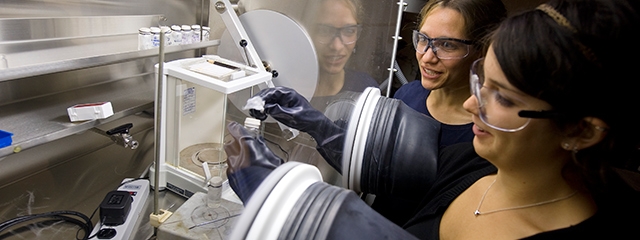“The best learning is that in which students progressively acquire the ability to teach themselves.” — The Making of a College
Today’s college education must prepare students to be innovative, adaptable, and original thinkers and leaders. It must develop the abilities demanded most by life in the 21st century: creativity and innovation, collaboration and communication, critical thinking and problem solving.
Whether you are looking for the best liberal arts college for nontraditional high school students, gifted students, or nontraditional students, it can be a challenge to find a liberal arts college that approaches its mission with a philosophy of personalized, integrative, hands-on learning, equipping students to continue their education throughout their lives.
This recipe for lifelong learning can come in many forms, but here are four key ingredients you won’t want to go without.
1. Design Your Own Education
(Think Cage-Free)
Instead of pre-defined majors, Hampshire College offers self-designed areas of study. To further encourage a truly personalized education, Hampshire has replaced single-subject departments with five interdisciplinary schools.This flexible structure permits a student a greater richness and variety of academic activity.
2. Get Personal
(Collaboration takes Connection)
Hampshire’s student-to-faculty ratio is 12:1 and the average size of the discussion-based classes is 15. Hampshire is one of only a few colleges that don’t give letter grades. Because the purpose of evaluation is to give students meaningful, constructive feedback (because they know you!), faculty members provide extensive written feedback on papers and projects. Graduate schools and employers appreciate Hampshire’s comprehensive narrative transcript, which offers a level of detail not reflected on traditional transcripts.
3. Let Faculty be Mentors and Collaborators
Mentorship in college matters, and first-rate academic mentorship is a hallmark of the Hampshire experience. A student’s academic advisor is also the professor for their first- year tutorial. Thereafter, upper-level studies are guided by committees of at least two professors of the student’s choosing. Students are on a first-name basis with their professors, who often join them in research projects, lead them on study trips all over the world, and network to connect students with internship opportunities.
4. Turn Ideas into Action
(Build Your Own TARDIS)
A student’s work will culminate in a Division III project, which is a significant and original contribution to the fields chosen by the student. Division III projects are guided by faculty committees, and they take many forms: a thesis, portfolio, exhibit, recital, performance, product, installation, film, animation, software, and beyond.
Turn your ideas into action.
Learn more about Hampshire College.
The Proof is in the Pudding
(And You Can Make it Any Flavor)
One of many examples of what this type of education can produce, The Incident at Tower 37, a 10-minute animated film written and directed by Professor Chris Perry and collaboratively created with his Hampshire animation students over four years, has already shown at more than 40 festivals and won numerous awards since it first began its festival run.
About Hampshire College
Hampshire College is a selective, private liberal arts college located in Amherst, Massachusetts.
At Hampshire, your education focuses on personalized, independent work, close collaboration with faculty, and hands-on experience through study abroad, short-term field studies, internships, volunteer work, advanced independent projects, and much more.






